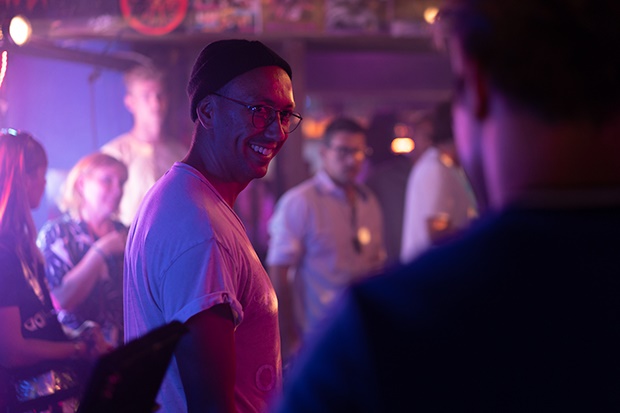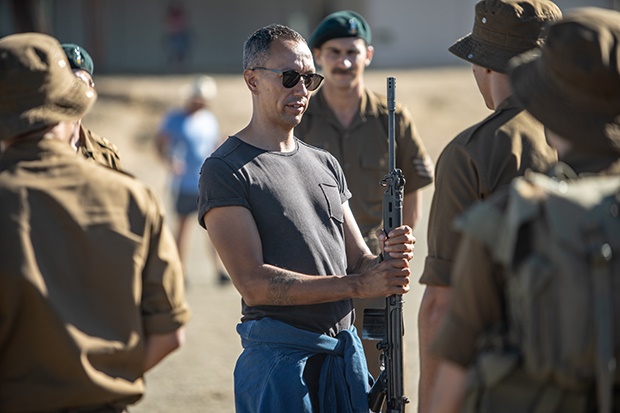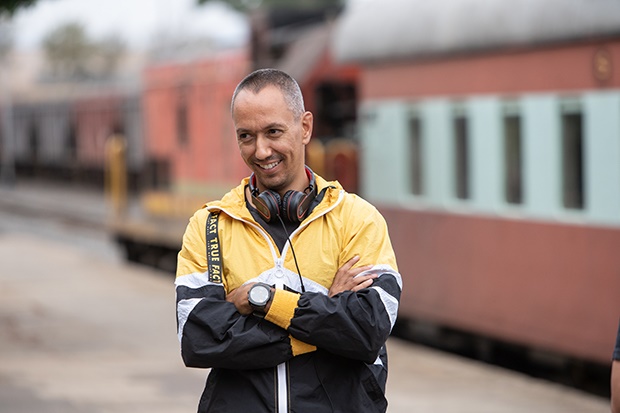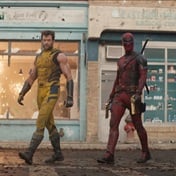
Herman Eloff, News24’s Lifestyle and Entertainment Editor, in conversation with South African filmmaker Oliver Hermanus about war, sexuality, and the local film that’s receiving praise in SA and beyond its borders.
I had imagined starting this interview piece like some glossy print magazine in which the journalist first paints a portrait set against the backdrop of a lonely café or swanky bar and then bonds with his subject matter like two familiar friends meeting again (for the first time ever).
Even in an industry birthed by creativity and individuality there are pre-determined thick black lines within which the journalist must colour. These are placed there to create a false world of comfort for the reader in which they are able to imagine the conversation between the subjects taking place.
I had, in fact, already written such introduction for this interview with South African filmmaker Oliver Hermanus when I stumbled upon an article published in the New York Times by journalist Brooks Barnes. In his piece Barnes spoke to Hollywood heavyweight Ben Affleck about his new film The Way Back and does away with any false pleasantries to lure the reader into a twisted narrative that make it seem like he was old buds with Ben while bonding over a steaming Americano.
I found this honesty refreshing and surprisingly comforting. At first, I was puzzled by the allure of breaking the mould in such a brazen and unapologetic way, but I soon realised that colouring within the lines has always been an essential part of hiding my true self. Doing what is expected in the way it is expected has dictated a large majority of my adolescence and breaking free from that and embracing my true self has been almost euphoric. Fuck the rules with reckless abandon.
By the time I meet Oliver at the pre-determined coffee shop at the pre-determined time he had already shared his thoughts on his new film with a herd of other journalists over far too many cups of coffee. (I say herd given our tendency to move together as large or small groups to get the story.)
Oliver declined the offer when I placed my order for an Americano without milk. I was silently gutted. The picture of journalist and film director chatting over a fresh cup of coffee had instantly evaporated whilst I was still trying to make a mental note of what the 37-year-old was wearing for a later in-detail description I was sure to write.
(BEHIND-THE-SCENES: Director Oliver Hermanus on the set of Moffie. Photo: Supplied/Moffie Film)
Oliver, who has travelled far and wide from film festival to film festival, was also recovering from the flu. "I got tested for the coronavirus but it wasn’t that," he assures me as we continue for a short while to share our thoughts on the global pandemic that now dominates mostly every conversation.
I was definitely not the first journalist to interview Oliver that day. I know this because the seat I plonked myself in was still slightly warm from the person that occupied it before me. Oliver’s schedule is stuffed with interviews, press junkets, and film festivals that he neatly has to balance with new projects he’s already working on. It might be the start of the viewer’s journey with Moffie, but for Oliver it’s the final act of a story years in the making.
"I did a research scout and went along the whole border in 2018. Really beautiful but also, it’s a strange place to imagine that all of this took place. The landscape also changes so dramatically. Living there must be pretty but at that time must have been really intense,” Oliver explains as I nervously sip on my coffee solo and do a quick check to ensure my iPhone is recording.
"I need to have the research to be able to give information to the actors. They will ask a lot of questions about the guns, the drills, what they’re wearing, what they are about to do. There are a lot of rules in the army, so I had to know the background despite having the military advisers on set. I had to understand the history. How the border war came about and that journey that our film takes place in. You need to have that reference. The war is also something people don’t know a lot about. It’s part of our recent history that doesn’t get talked about. A lot of our actors never asked their fathers about it before the movie. They never realised that there’s this part of their fathers’ childhood that they know nothing about."
"My dad doesn’t talk about it," I say as my ceramic cup clinks against the saucer. The underlying bitterness of a third coffee for the day hits my tongue. I instantly regret my choice to order a cup.
"It’s very common," Oliver adds calmly.
I add: "I think what the film captures so beautifully is how the toxicity of that forced brutality seeps into the next generation. What happened then forms part of our current definition of what masculinity is and that can cause friction when we stand up against it and I think that complicates our relationship with our fathers."
"Yes," Oliver says, before adding: "That toxicity was again pushed down onto our society. It’s kind of interesting to think about the fact that there’s a whole generation of men that is alive and well and this was all part of their formative years.
"A lot of the times we had to shoot scenes that weren’t comfortable. When you recreate these moments from history in today’s context it becomes very tense. Some scenes, based on real experiences, were horrible to shoot. These people have terrible experiences that was hard even for us that were making fake versions of it."
"I love that you’re touching on that. The film is aesthetically beautiful, visually pleasing, and soft on the eye, yet it’s extremely rough, violent, and a heavy watch. It’s exhausting on the senses," I tell Oliver as a massive compliment.
"I never noticed that it’s exhausting," he admits before adding: "I always try to make it as impactful as possible, depending on the story. I’m assuming that everything is kind of 'vanilla' all the time. So, I keep pushing it. There’s always a moment when you can sense that everyone is thinking ‘he’s now going too far’. So, I wait for that. But when I cut the film, and I watch the film I see like a Disney movie," Oliver jokes.
He adds: "At this point right now I’m quite panicked because I don’t know what South Africans are going to experience. Audiences overseas have different appetites. For them the film is more about the military experience, where for South Africans it will be more historical. So, it will be interesting to see the reaction."
(DIRECTOR: A behind-the-scenes photo of Oliver Hermanus from the set of the film. Photo: Supplied/Moffie)
Moffie explores the reality of a young soldier battling to come to grips with his sexuality in a time when South Africa was caught up in a war that would have far-reaching consequences to this day. For many gay men their journey to self-acceptance is often a brutal one filled with anxiety and the fear of being "exposed". For some it’s easier, but for others it’s a battle. A war. It’s within that sentiment that lies the success of Oliver’s latest cinematic triumph based on the book by Andre-Carl van der Merwe.
I don’t know Oliver personally, but I’ve been following him on social media and after my conversation with him I sense he would instantly pick up any limp attempt by a journalist trying too hard to impress him.
Oliver is a thinker. He’s emotionally tuned in. He might be tired (and a little bit sick) but he’s completely present during our conversation. He listens. I also quickly realise I’m not the only one asking questions in this interview. All of a sudden I’m really glad that I did my research and watched the film long before I took my seat in front of him at the table.
I know Moffie is good. In fact, it’s exceptional. But I don’t tell Oliver this. Instead he’ll read my thoughts a few weeks later when I published my 5/5-star review of his film in which I praise it for highlighting the "brave battle of self-acceptance without the jubilation of victory".
I also did my background research on the war itself.
The South African border war, also known as the Namibian war of independence, took place from 1966 to 1990 between the South African Defence Force (SADF) and the People's Liberation Army of Namibia (PLAN) which was an armed wing of the South West African People's Organisation (SWAPO).
In 1984, when the war reached a violent climax, I was born.
I grew up in a small town close to Namibia’s northern border where the war was wreaking havoc. This was one of the reasons the film struck a chord with me. That, and its brazen, bold, and brave title.
"So, I read the book when I moved to Cape Town. It was one of those things that I bought…"
"Because you saw the title," Oliver completes my sentence before I could.
"Yes," I say immediately. A little shocked. The word that was used to humiliate, taunt, and bully me was the exact reason I picked up the book when I saw it on the shelf of a bookshop. "It was one of those things that I bought, and I was like 'don’t let anybody know' kind of thing. Because I only came out about 10 years ago."
"10 years ago?" Oliver says with a surprise tone in his voice. "That’s a long time ago."
"Like when I was 25," I reply.
"In your mind, is that quite late?" Oliver asks.
"Yeah. For me that was late," I reply. "I suppressed it. Even when I was studying." For me twenty-five years of my life was spent being a person that society would deem accepting.
"Do you think everyone kind of knew?" Oliver asks.
I pause. "I think people kind of knew…"
Oliver: "You didn’t tell one person?"
"I didn’t even tell myself."
Years later my journey has come full circle. The word moffie is popping up on my radar again, but for a completely different reason and this time I’m ready to own it. In my review for the film I wrote: "Moffie, a derogatory term used to describe a man regarded as effeminate, becomes a burly battle cry that fiercely slams its fists into the ground to upend the toxicity that masculinity is rooted in.
"A word once used as a weapon by the enemy is turned into a sharp blade that slashes back quicker and deadlier than it could leave the mouth of a hater. A word that is meant to make us feel powerless, shameful, and unwelcome in the fraternity of manhood becomes a symbol of our quiet resilience. A word meant to shun us from our virility becomes a metaphor for the war we fight within."
This is a big part of why Oliver decided to go with the controversial title. He purposefully wanted to denuclearise the word: "The word moffie was used to accuse you of not being manly. All of the conscripts were subject or victim to the word used to isolate them or identify them or to make them a target of bullying by other conscripts. That’s kind of what the word still does today. It’s used to hurt men in a way that emasculates them."
"It was a word used in school to humiliate me. I didn’t want to be associated with it at all."
"So, you start to hide from it."
"Yes."
"That’s kind of the point of our film. That’s what gay men have had to do. You’ve created two versions of yourself. There's the self that you inherently are and start to diminish and then there’s the person that you construct."
"Yeah…" I say. Oliver had not just hit the nail on the head…he demolished it in a single swing of the hammer. "Interestingly, only now about 10 years after coming out, I'm for the first time comfortable enough with my masculinity to the point that I’m embracing it now more than ever before in my life."
"Really?"
"Yes, I feel like I’m…"
"Equalised."
"Yes. I feel like before I wasn’t allowed to embrace it because I wasn’t playing by the rules of what is considered 'masculine'. But now that I’m comfortable enough with who I am and can be open about my sexuality I’m actually enjoying exploring the masculine side of my identity."
"One of our actors said that he doesn’t see his family a lot because he can’t be himself around them. The hyper-masculine head-space that is permeating through South Africa for so long means that if you are gay that’s the reason why you can’t say you’re gay, because it’s shameful. It's a shame structure."
I say to Oliver: "That’s what the film does so well. It starts to scratch off layers in different places for different people which is a good thing."
He replies: "I think it’s also about allowing people who were traumatised and who were repressed by the army and by the system to realise that they are not the only ones.
"You always hope that films allow people to feel better about themselves or at least feel understood in some way."
Thank you, Oliver.
Moffie is showing in South African cinemas now.
WATCH THE TRAILER HERE:




 Publications
Publications
 Partners
Partners













